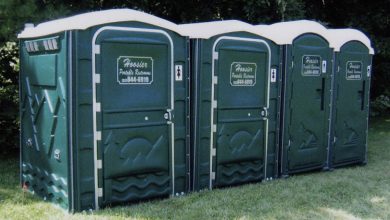
Introduction
After the implementation of the Water (Prevention & Control of Pollution) Act, 1974, the Haryana State Pollution Control Board was established in 1974 via Haryana Government Notification No. 3677-P.W. IV (4) 74/33298 dated 19.09.1974, to protect the wholesomeness of water. Following the enactment of other environmental legislation. The Haryana State Pollution Control Board was given the responsibility of enforcing the requirements of those laws in the state of Haryana.
Haryana Pollution Control Board’s Goals (HSPCB)
- Sustainable Development: Need for economic progress while also taking into account environmental conservation and social equality.
- Natural resource prevention to prevent natural resources from becoming destroyed.
- Waste Management
- Consumer Awareness-Awareness of the general people to use CFLs, paper bags, public transportation, and not to use fireworks.
- According to Acts 1974, 1981, and 1986, the HSPCB established various rules for the industry and health care establishments to reduce pollution in Haryana.
Obtaining Consent to Establish a Procedure
- New industrial units/projects falling under the Red, Orange, and Green Categories listed as Annexure-I, Annexure-II, and Annexure-III, respectively, shall apply for Consent to Establishment of the Board through the Haryana Enterprises Promotion Centre (HEPC) on-line portal, i.e. http://investharyana.in, in the prescribed form, along with the requisite NOC/CTE fee as prescribed by the Board from time to time, and will be deposited
- The application must submit by an authorized representative of the industry/project
- All required papers for different industrial units/projects included in the checklist at Annexure-V will submit by the units when they apply for CTE by uploading them to the online portal.
Important Note: If it is noticed at any point that work on the unit’s site for the construction of plant and installation of machinery started before obtaining the Board’s consent to establish under the Water Act of 1974 and the Air Act of 1981, legal action will be taken against such units
Step To Obtain CTO and CTE
- Industry should visit hspcb website for consent to operate and consent to establish or you can visit Haryana Pollution Control Board NOC for easy and fastest solution for industry
- Check the list of your industries according to the list of red, orange and green category of industries
- Inspection Policy for Consent, Renewal of Consent and Other Inspections
Procedure Regarding Grant of Consent to Operate
The first consent to operate shall issue in two parts.
- Consent to operate for trial production: Under the Water (Prevention & Control of Pollution) Act, 1974, and the Air (Prevention & Control of Pollution) Act, 1981, the industrial units shall apply to the concerned Regional Office of the Board for consent to operate for trial production on the prescribed Common Consent Form, along with documents as per the check list given at Annexure ‘E’.
- Consent to operate for regular production.
Period for grant of consent to operate
| Category | Maximum period of grant of consent |
| Red | 2 years |
| Orange | 3years |
| Green | 5years |
Documents for obtaining consent to establish (CTE) under Water Act, 1974 / Air Act, 1981
- Fill out an online application
- Proof of payment of the NOC/CTE charge as well as the performance security.
- C.A. Certificate of Capital Investment Costs (land, construction, etc.), The proposed project’s plant and machinery.
- Intkal and Fard Jamabandi of the unit’s land, if the unit is located outside of a permitted industrial zone/estate
- A letter of power of attorney or authorization to sign the application.
- The plot’s allotment letter from the relevant authority in the case of an industrial zone that has been approved.
- Flowchart of the manufacturing process.
- Effluent Treatment Plant/Sewage Treatment Plant Design Scheme
- In the case of projects covered by the EIA Notification dated 14.09.2006, a copy of the environmental clearance is required.
- Copy of the Memorandum of Association/Partnership Deed/Trust Deed, as appropriate, which includes the names and addresses of the Directors/Partners.
- Declaration of the unit’s awareness of pollution control-related norms and laws, as well as an agreement to follow them, as per Annexure-VII
Read Also: Plastic Recycling Business: Is it possible to recycle plastic?





